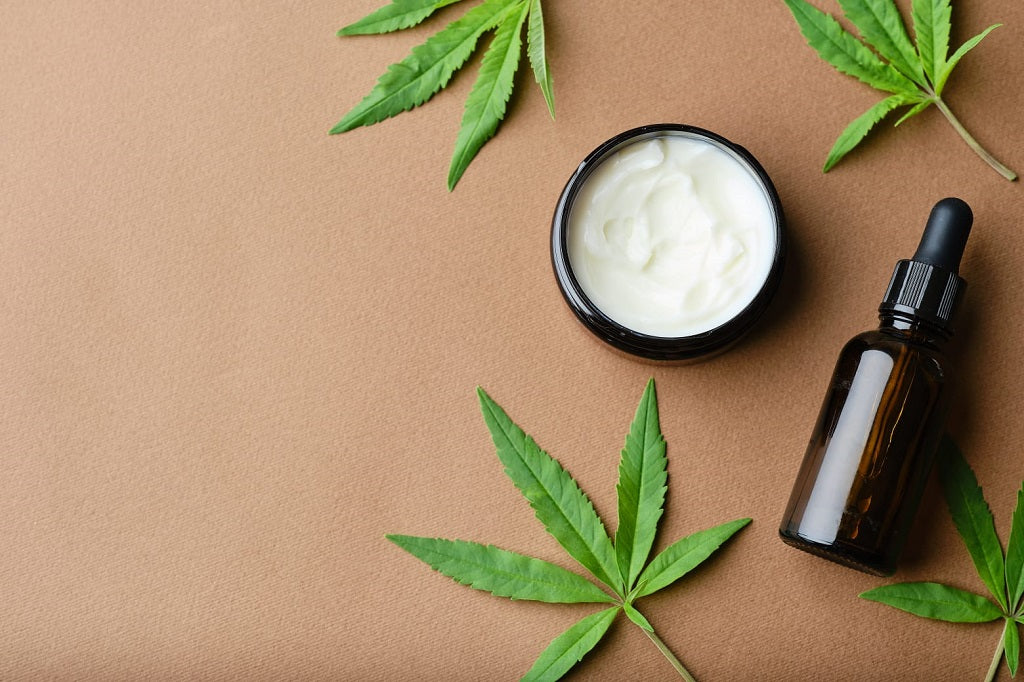People are now foregoing sulfates in their shampoos because they find it very abrasive on the hair. While sulfates are excellent surfactants, they can dry out the hair and scalp. Thankfully, there are many SLS-free alternatives available in the market, and they happen to be great cleansers as well. Many sulfate-free shampoos available in the market do an excellent job in maintaining hair health. This blog will deep dive into why sulfates are criminalized in the hair care world. Are they really bad for the hair, or can they redeem themselves?
What Are Sulfates?
Sulfates are detergents used as cleaning agents in many beauty and personal care products. It is commonly found in shampoos, face washes, body washes, soaps and toothpastes.
Shampoos contain 2 types of sulfates: Sodium Lauryl Sulfate and Sodium Laureth sulfate. These are used in many hair care products to form lather that effectively removes dirt and grime from the hair. On the contrary, sulfate-free shampoo produces very little to no lather.
Sulfates are considered the most effective cleansers as they fall under the category of anionic surfactants. They help get rid of sebum, dirt and other residues from the scalp and hair.
Due to their foaming property, sulfates are commonly found in dishwashing liquids and laundry.
Also Read : Are Sulphates Good or Bad
Why Are Sulfates Bad For Your Hair?
Sulfates are a type of surfactants that eliminate dead skin cells from the scalp, plus remove dirt and grime from the hair's surface. Sulfates make your shampoo foamy, which gives a super clean effect.
On the flip side, sulfates strip the natural oil from your hair, making it dry and frizzy. It causes scalp dryness, leading to an itchy and flaky scalp. The most common sulfates used in cosmetics and personal care products are:
- Sodium Laureth Sulfate
- Ammonium Laureth Sulfate
- Sodium Lauryl Sulfate
The aforementioned sulfates might differ in intensity, and each may result in different types of skin or hair irritations.
According to experts, the 'eth' versions are more gentle on your hair and skin. Moreover, the ammonium version is milder on your skin than sodium. Haircare products containing sulfates can cause acne along the hairline and on skin surfaces exposed to the hair products.
In case you have curly hair then you should try Anveya's Curls Hair Care Range which doesn't contain sulfates.
ANVEYA CURLY HAIR CARE RANGE

Sulfates and some other chemicals such as parabens have been penalized in the beauty world because of their adverse effect on skin and hair. This has persuaded many people switch to sulfate and paraben-free shampoos. But there are many rumours surrounding this foamy surfactant and all of which are not true.
Sodium Lauryl Sulfate Vs Sodium Laureth Sulfate For Hair
Sodium lauryl sulfate is a powerful surfactant that cleanses any surfaces better. As a result, its foam-forming ability is superior to other sulfates. Though Sodium Laureth Sulfate for hair is less irritating, it is ineffective at cleaning.
Many a time, both Sodium Lauryl Sulfate and Sodium Laureth Sulfate are included in the product formula to increase the efficacy of the products.
If you have trouble with acne or clogged pores, it is important to check the labels for the list of ingredients and not use SLS in your skin and hair care products.
When Should Sulfates In Haircare Products Be Avoided?
Despite being good at removing oil and dirt, sulfates may be too strong for some people. They may not work for people with sensitive skin, as they can be allergic to these types of chemicals.
Dermatologists suggest sulfate-free shampoo for people with dry skin conditions such as rosacea. Sulfates may cause allergic reactions on the scalp, shoulders, and back in people suffering from dermatitis and rosacea. They also suggest that people suffering from dry skin conditions (eczema, dermatitis and rosacea) should avoid hair care products containing harsh chemicals such as artificial fragrances, alcohol and switch to sulfate and paraben-free shampoos. Sulfate hair shampoos can exacerbate dry skin conditions.
They can cause allergic reactions on your scalp or face. Some common symptoms include:
- Redness
- Swelling (inflammation)
- Itching
- Dry and Flaky Scalp
- Skin rash
- Hives
Dry and fine hair is fragile and more susceptible to breakage. Sulfate based shampoos can strip the natural oil from your hair resulting in dry scalp conditions and making your hair more prone to breakage.
Also Read : 10 Amazing Remedies to Get Rid of Dry Scalp
Sulfates also cause hair frizz and create a negative charge in your hair that can lead to frizz. Frizz-neutralizing ingredients can help reduce these risks. But if your hair is dry and frizzy, you mayhave to skip sulfate-based shampoos
Experts suggest sulfate-free shampoos for colour-treated hair to retain hair colour for a longer duration. These shampoos won't lather well but can maintain moisture in hair that has been damaged by colour.
Take Away
Sodium lauryl sulfate and Sodium Laureth Sulfate for hair are not necessarily harmful to everyone. However, experts recommend that it is best to use sulfate-free shampoos if you have thin, dry, frizzy hair or if you have a sensitive skin.
Also Read : Shampoo Bars Are The Perfect Environmentally Friendly Pick For Your Hair
Disclaimer: All the content on anveya.com/blogs is solely for information. It is not intended to be a substitute for professional medical advice, diagnosis or treatment. Always seek the advice of your physician or a qualified health care provider. The information, suggestion or remedies mentioned on this site are provided without warranty of any kind, whether express or implied.



